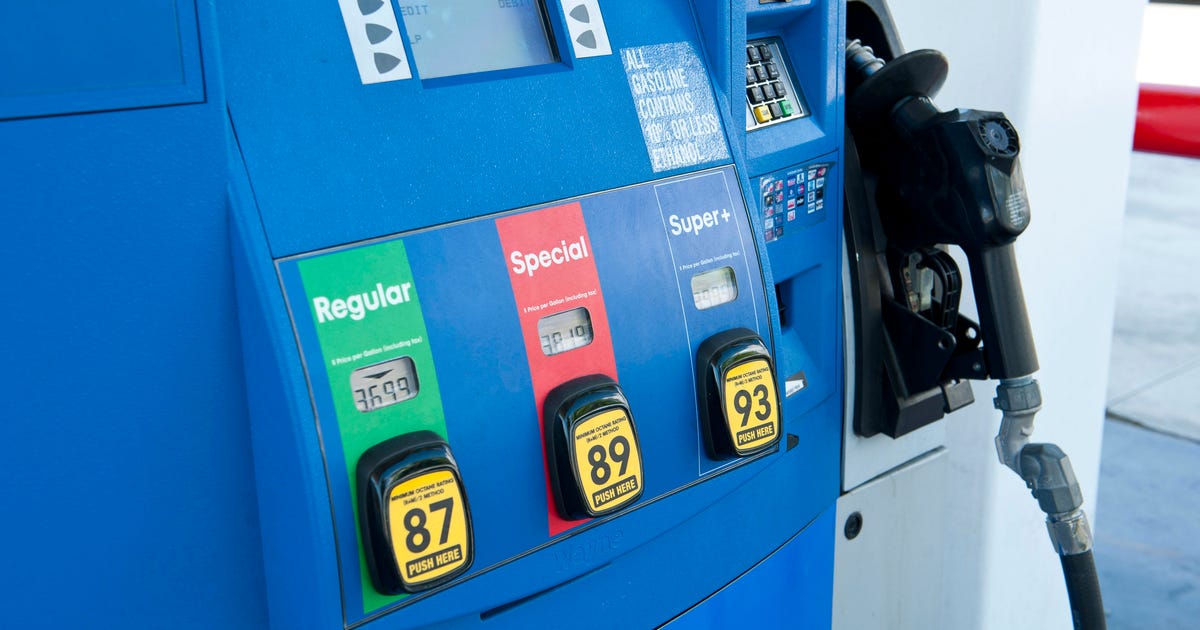
When gas is cheap few of us sweat getting maximum MPG, but that quickly changes when prices soar. While many people react by shopping for a more fuel efficient car (that takes many years to pay for with fuel savings) a more rational approach is to steal a few pages from the hypemiler's playbook: techniques that hardcore fuel economy seekers have used for years to approach triple digit MPG. Some of their techniques are either risky or mostly relevant to hybrids, but the ones I summarize below are sound and can be used the next time you get into the gas-engined car you already drive.
Moderate acceleration
Hard acceleration uses more fuel, doesn't get you anywhere measurably faster and can put more wear and tear on your car. Ease into the accelerator unless otherwise necessary for safety.
Moderate Speed
Use that moderate acceleration to get to a moderate speed. Moving a big block of metal through air resistance is the very essence of why this article and video have to exist. Slow it down and you'll use less fuel without a meaningful change in your arrival time. And even one speeding ticket avoided will pay for a couple tanks of gas.
Moderate braking
This is the bookend to moderate acceleration. Brake, of course, but try to do it as little and as gently as possible, consistent with safe driving. It's actually a fun game to see how elegantly you can brake during your drive. Bonus: You'll have far less ugly brake dust on your wheels.
Drive ahead
All the key steps I've outlined so far require that you drive with awareness beyond the car in front of you. Deepen your perspective of the view outside your windshield and your driving becomes more finessed and efficient.
Keep your tires properly inflated
This is perhaps the oldest and most ignored advice car ownership advice. Proper inflation reduces rolling resistance and improves handling. Get whatever type of in-car or at-home air pump that is going to make it palatable to check your tire pressure once a month. Here's the gear I use to stay on top of my tire pressure.
And keep your tires aligned. Misaligned wheels scrub their tires as they roll down the road, creating a persistent drag your engine has to constantly work to overcome.
Coasting
To some this means putting a car in neutral, but that's always been a ham-fisted and even illegal technique. Rather, just coast when it makes sense; you'll find it dovetails naturally with the steps above. Cars made in the last 10 years or so are programmed to be miserly with fuel when they detect coasting -- some even disengage part of the drivetrain to freewheel and save even more.
Use auto stop/start
It's fitting that this annoying technology's acronym is ASS, but auto stop/start technology has been developed by carmakers at no small cost because it works, saving up to 7% of fuel otherwise consumed during a drive, according to AAA.
Use air conditioning properly
This gets into a religious war, but I come down on the side of the 45 MPH rule of thumb: Below 45 MPH, roll down the windows and turn off the AC. Above 45 MPH, do the opposite. All of this depends on how beastly the weather is, of course, but know that AC is the No. 1 thing that drops MPG in hot weather driving.
Convertibles? I'm not going to tell you not to enjoy your open car, but the top down-windows up-AC on thing puzzles me.
Park out
Not only does parking out in the south 40 save you a lifetime of door dings but also a fair amount of fuel you'd waste noodling around the parking lot, stopping and starting.
Don't buy premium gas
Unless your car requires or recommends it, putting premium fuel into its tank is like tossing a few dollars on the ground at the gas pump. A car needs to be engineered mechanically and electronically to take advantage of premium fuel's higher resistance to detonation and ability to support higher cylinder compression for it to make any difference in power or economy. That doesn't happen by putting it in your tank.
Use the right oil
Not light, not heavy oil, but oil of the viscosity approved by your car maker. There can be a semi-logical temptation to use a heavier oil as your car gets above 75,000 miles, but don't do it unless you know the bottom end of your engine is badly worn. Heavier oils can increase internal engine friction and waste gas.
Don't warm up your car for too long
Another religious topic, but long warmups waste more fuel than they extend engine life. Start your car then buckle up, plug in your phone, choose your audio, and check your mirrors. I believe that's all the warm up your car needs in normal weather and will save your fuel wasted idling cold, which is not a combustion engine's finest moment.
"some" - Google News
July 05, 2021 at 08:00PM
https://ift.tt/3jJN6GN
Save real money on gas by taking some tips from hypermilers - CNET
"some" - Google News
https://ift.tt/37fuoxP
Shoes Man Tutorial
Pos News Update
Meme Update
Korean Entertainment News
Japan News Update
Bagikan Berita Ini















0 Response to "Save real money on gas by taking some tips from hypermilers - CNET"
Post a Comment